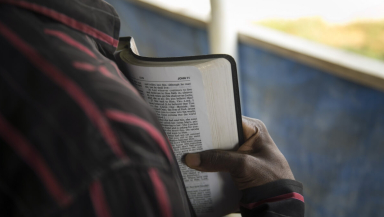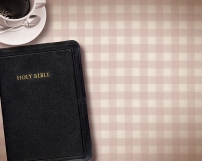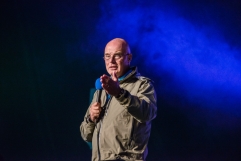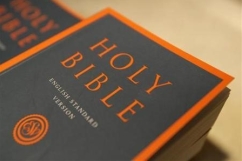
"The Bible is full of contradictions!" said the man on the beach. "No it isn't" I replied, with proud confidence. "Oh yes it is!" "Oh no it isn't!"
Sunbathers sat up to witness this unfolding Punch and Judy show. Then my opponent dealt the killer blow: "But have you actually read the whole Bible?" This exposed an awkward truth. I had been a Christian for several years, read the popular bits and heard plenty of sermons, but every time I tried to read the whole Bible, I got lost in Leviticus and gave up.
I left the beach that day feeling defeated, but with a new determination to go through the Bible cover to cover. Since then I have read it many times over and have come to the conclusion that it is not a contradiction, but a divinely inspired text with a harmony that is nothing short of miraculous. But that doesn't make it any easier to get into...
Owning a Bible is one thing, but reading and making sense of it is a challenge. So why do many 'Bible-believing' Christians remain haunted by that awkward question: "But have you actually read it?"
Well the Bible is a big book, so we need to see the big picture. The word Bible is derived from the Greek word for 'book'. But it's actually in the plural form – and that's a clue. The Bible is not one book like a novel or travel guide. It is a small library of many books and it is such a large collection of writings that it is printed on thin paper to fit it all into one cover.
So it's not just a big book; it's a small library, which is enough to put many off even getting started. A university friend summed it up well: "Being asked to read the Bible feels like being asked to eat an Elephant... I don't even know where to start!"
In fact, where to start is really important. After all you wouldn't walk into your local library and pull the first book you find off the first shelf and start reading. You would go to the centre of the library and ask for an overview of all the sections and categories before finding the best place to start. The centre of the Bible is Jesus Christ – he divides it into two Testaments and unites it into one story. So the four Gospels about Jesus are often the best place to begin. From the centre, from Jesus, we can make sense of the rest – looking back to the Old Testament and forwards to the rest of the New Testament.
The Bible is also a story. Composed over thousands of years with hundreds of chapters and dozens of characters, the Bible tells God's story.
It begins with creation. Then as the world goes wrong ('the Fall'), God goes local and makes a covenant with Abraham – somehow, by the end of the story, through his family good news will reach all families. His descendants become a nation called Israel who are rescued from Egypt (the Exodus), led into the promised land of Canaan only later to face exile for disobedience. The Old Testament finishes with Israel waiting for the Messiah (God's King) who will bring a new exodus of real salvation for every family on earth.
This is the Bible's big picture and when we see it, the small stories and verses come together like pieces of a jigsaw. So before diving into the detail, take a helicopter ride to see the big picture of the Bible story.
The biblical texts also originate from ancient cultures so they need to be interpreted for today. Some parts of the Old Testament can seem especially bizarre with ancient genealogies, laws about bodily fluids and strange customs regarding washing and eating. The distance between our culture and the time it was written means we need to interpret it.
Good interpretation involves two movements summed up by the film title Back to the Future. First we need to go back to ask: What did this text mean to those it was written to? There are some great resources and courses to help with this so we are not on our own. Then we can bring the text forwards and ask How would the principles apply in our culture today? Washing each other's feet in a culture of shoes and daily showers is meaningless, but the principle of servant leadership applies every day.
The Bible remains the world's bestseller year after year. If you own a copy you possess one of the wonders of the world. But don't leave it on the shelf. When we get the big picture and learn to interpret it for our culture, this big old book speaks to us in new and exciting ways.
Rev Andrew Ollerton is the author of The Bible Course – an eight-session journey through the whole Bible story. Follow Andrew on Twitter @andyollerton

















